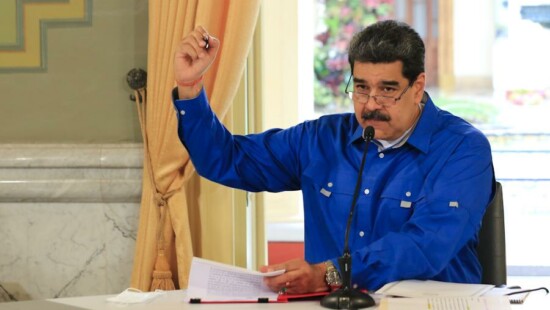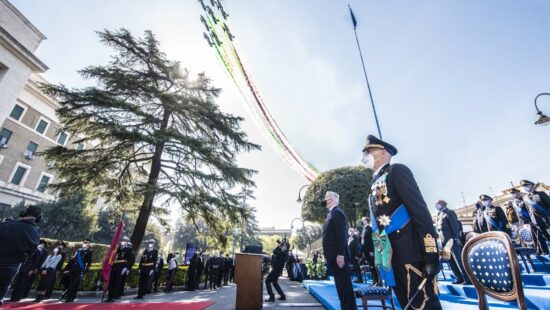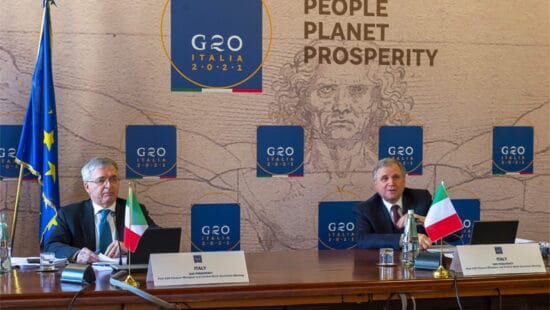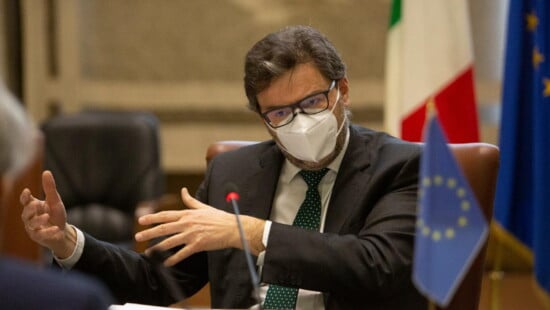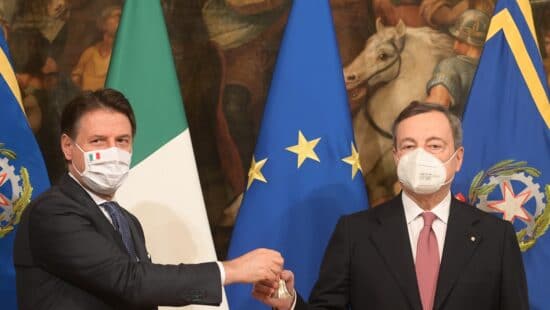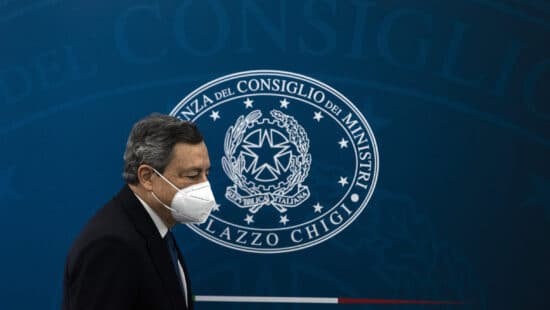Il deficit di liquidità rimane uno dei problemi cruciali delle aziende italiane. Sono 32mila le aziende in deficit di liquidità per un fabbisogno complessivo di circa 17 miliardi di euro, nonostante gli aiuti stanziati dal governo. E bisognerà affrontare nel prossimo settembre l’entrata in vigore delle nuove norme sulla crisi d’impresa e dell’insolvenza
Archivi
Arriva Sputnik Light? Ma allora il vaccino russo non era così perfetto
La Russia aveva costruito gran parte della comunicazione di Sputnik V proprio nell’essere composto da due dosi, una diversa dall’altra, per una più alta copertura immunitaria e una minore reazione avversa. Ma dopo averlo promesso a destra e a manca, ha capito che produrre, distribuire e inoculare due farmaci diversi è costoso e difficile. Così si è inventata la versione “Light”…
Petrolio per vaccini, il baratto proposto da Maduro (escluso da Facebook)
Una parte della produzione petrolifera sarà dedicata all’acquisto di vaccini, secondo il leader del regime venezuelano. Ma solo a chi garantisce un prodotto affidabile (il riferimento è ad AstraZeneca). E intanto la piattaforma social sospende l’account di Maduro per le “gocce miracolose” anti-Covid…
Pronta a un futuro imprevedibile. Guerini e Rosso celebrano l'Aeronautica militare
Con il ministro Lorenzo Guerini, l’Aeronautica militare ha festeggiato a Roma i suoi primi 98 anni. Una cerimonia inevitabilmente ridotta dalla pandemia, per il secondo anno di fila, ma densa di significato, di simboli e di “futuro”. Tra salto tecnologico e scenari imprevedibili, la Forza armata si conferma “un’eccellenza”
G20: priorità a innovazione e trasformazione digitale per l’Italia
Un momento storico di particolare rilievo per l’Italia che, tra la presidenza del G20 e la stesura del recovery plan, è chiamata a rispondere con forza alla sfida di riconquistare maggiore centralità sia nei confronti dei suoi partner europei sia sul panorama internazionale. Sul fronte dell’innovazione e della transizione digitale molti sono gli aspetti in discussione. La crisi pandemica ha…
Graham Greene, la spia di Dio che amava le donne
Il 3 aprile del 1991 ci lasciava Graham Greene (Berkhamsted-Londra, 2 ottobre 1904), giornalista, agente segreto, scrittore e critico letterario, sceneggiatore e conferenziere. Noto agli amanti della spy story con romanzi che fecero scuola, “Il potere e la gloria”, “Fine di una storia”, “Il nocciolo della questione”. La sua poetica è attraversata da un forte senso etico di giustizia e dal tema cattolico del peccato. Divenne popolare con la sceneggiatura, del subito celebre, “Il terzo uomo”, (1949), di Carol Reed, che schierava un superbo cast: Joseph Cotten, Trevor Howard, Orson Welles e Alida Valli
Il triangolo portante Italia-Germania-Francia, tra sovranità, filiere e golden power. Giorgetti al Ced
L’intervento del ministro dello Sviluppo Economico alla presentazione del position paper “Sovranità tecnologica” del Centro Economia Digitale. Tra il gigante americano e quello cinese, non ci sono dubbi verso chi dobbiamo rivolgerci e da chi dobbiamo tutelarci. L’Europa deve costruire la sua sovranità sulla base di valori e sull’architrave Italia-Francia-Germania. La ricostruzione della filiera sanitaria e il fondamentale strumento del golden power
Un dictator per la pandemia? L'opinione di Celotto
La richiesta di misure “di guerra” da parte del capo della protezione civile, in questa fase, mi pare da intendere soprattutto come provocazione politica, per far capire a tutti che la pandemia non è stata sconfitta ancora e che serviranno ancora settimane di sacrifici. L’opinione di Alfonso Celotto
Vi spiego la (vera) discontinuità tra Draghi e Conte 2
È soprattutto in materia di rapporti con l’Ue che c’è grandissima discontinuità tra il governo Draghi e il Conte 2. La vasta maggioranza che sostiene il governo Draghi include forze politiche con sensibilità differenti nei confronti delle istituzioni dell’Ue e del loro operato. L’analisi di Giuseppe Pennisi
Dov’è la Cina nel mondo di Draghi? Non in primo piano
Pubblichiamo uno stralcio dell’articolo “Mario Draghi: quando il leader pesa più del paese” firmato da Atlanticus e pubblicato sul numero 92 di Aspenia, rivista diretta da Marta Dassù






